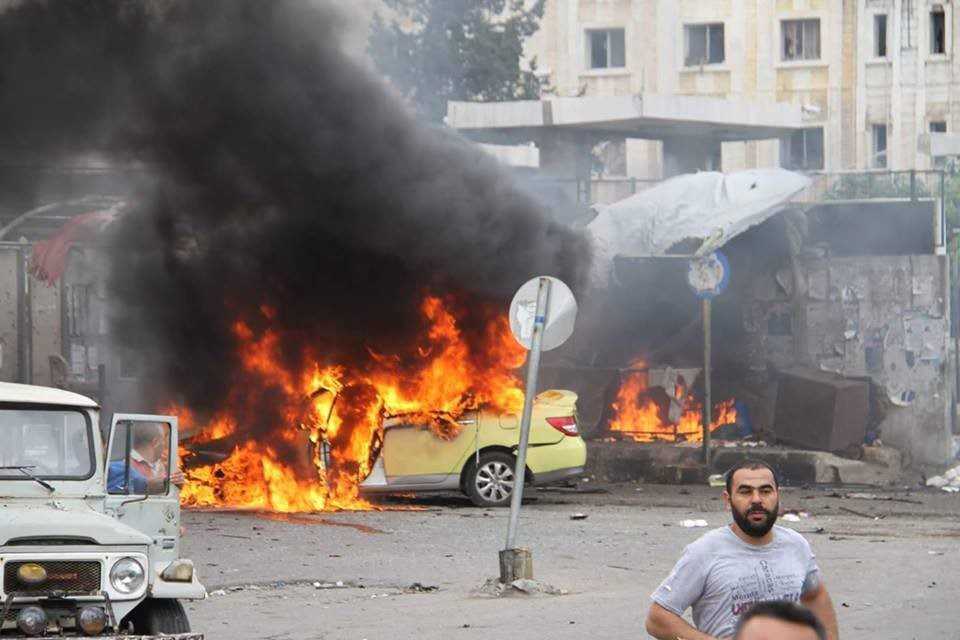Sectarianism, suicide bombers and retaliation along the coast: ‘The monstrous way this hatred can manifest itself’
AMMAN: Multiple coordinated explosions rocked two highly secured cities on […]
23 May 2016
AMMAN: Multiple coordinated explosions rocked two highly secured cities on Syria’s coast on Monday, killing more than 120 people in the Alawite heartland and injuring scores of others in grisly suicide bombings targeting civilians at bus stations and a hospital.
At around 9:10 Monday morning, four explosions hit three separate locations in the small coastal city of Jableh, located 23km southeast of the provincial capital of Latakia city, state-run news agency SANA reported.
The attacks targeted a minibus depot, the local electricity municipality and the Jableh National Hospital, according to SANA.
At the same time as the Jableh bombings were unfolding, three suicide bombers, one driving a vehicle and two on foot, detonated their explosives at a second minibus station in the city of Tartus, the coastal capital of the eponymous province located 30km north of the Lebanese border.

“All of the explosions happened at the same time,” Umm Ahmed, an eyewitness who was waiting for a shared taxi near the Tartus minibus station at the time of the attack, told Syria Direct on Monday.
“It was terrifying, the explosions were massive,” she said.
In the hours following the attacks, a tweet circulating on social media allegedly released by the Islamic State’s semi-official Amaq Press, claimed responsibility for the bombings.
However, Amaq’s Twitter account and WordPress site are currently blocked and Syria Direct cannot confirm the authenticity of the IS claim of responsibility.

Both cities targeted in Monday’s attacks are located along Syria’s Mediterranean coast, considered the heartland of the regime, and have witnessed little violence compared to other parts of the country.
The bombings in Tartus, the site of a large Russian naval base, are the first major attacks in the city since the uprising against Syrian President Bashar al-Assad began in 2011. The bus station targeted in Jableh was the target of a similar attack in 2012, but the city has remained relatively quiet since that time.
Due to the relative stability of the coastal region, and of Tartus in particular, thousands of displaced Syrians from neighboring Idlib and Aleppo provinces have taken refuge there. After the bombings on Monday, a group of young men set fire to a displaced persons’ camp south of Tartus, pro-regime Sound and Picture news outlet reported from Tartus.
The young men “set fire to several tents at the al-Karnak camp which contains about 400 Sunni families who have fled to the area,” a lawyer from Tartus who requested anonymity told Syria Direct on Monday.
The lawyer, who described himself as supporting neither the Syrian regime nor opposition factions, said that the al-Karnak incident is a sign that Monday’s bombings are already exacerbating sectarian tensions in the area.
“We’ve been dealing with this rising sectarianism for the past few years,” he said.
“After today’s bombings, people wanted to take their anger out; the fact that they did so in this way is a clear indication of the monstrous way this hatred can manifest itself.”







